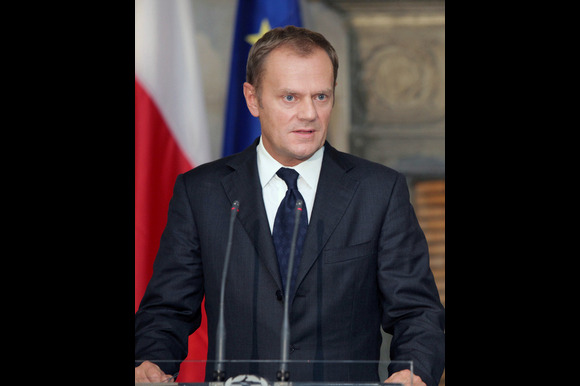Polish Prime Minister Donald Tusk has called for a vote of confidence in his pro-European Union government following a narrow loss by his political camp in the recent presidential election.
The confidence vote, scheduled for Wednesday, is widely expected to pass, as Tusk’s coalition holds a 12-seat majority in the Sejm, Poland’s 460-member lower house of parliament. A simple majority—achievable with just half the chamber present—is all that is required.
Addressing the chamber ahead of the vote, Tusk emphasized that Poland cannot “close its eyes” to the new reality, acknowledging that the election of Karol Nawrocki, backed by the opposition Law and Justice (PiS) party, presents “greater challenges” for his administration.
In Poland’s political system, the president wields the power to veto legislation. Nawrocki, a socially conservative ally of former U.S. President Donald Trump, opposes both a federalized European Union and the accession of Ukraine into NATO and the EU. He is expected to follow the path of outgoing conservative president Andrzej Duda, who frequently used the veto during the first year and a half of Tusk’s term.
Tusk’s governing coalition lacks the parliamentary supermajority required to override presidential vetoes. Although this limitation cannot be overcome, a renewed vote of confidence would serve to reassert the government’s legitimacy and provide renewed political momentum.
Tusk also announced that a cabinet reshuffle is scheduled for July.
“I’m requesting your vote of confidence because I believe, with full conviction and faith, that we possess the mandate to govern and to take full responsibility for Poland’s future,” Tusk stated.
He added, “We face two and a half years under challenging conditions, demanding complete mobilisation and accountability.”
In a symbolic moment, Tusk referenced tennis star Iga Świątek’s failed bid to claim a fourth consecutive French Open title, citing the famous quote, “Victory belongs to the most tenacious.” Critics in the opposition are likely to use that analogy against him, suggesting that, like Świątek, he may ultimately fall short. Indeed, during Tusk’s remarks, the opposition benches were notably empty.
Tusk highlighted areas where he believes his administration has outperformed PiS, such as boosting defence spending and adopting stricter migration controls—both issues PiS typically champions.
He pointed to Poland’s reintegration into European politics, referencing a newly signed bilateral defence treaty with France that pledges mutual assistance in the event of an attack.
Tusk concluded his speech to a standing ovation from his coalition members.
However, issues central to the government’s smaller left-wing coalition partner were notably missing. There was no mention of Tusk’s campaign pledge to legalise abortion up to the 12th week of pregnancy, a promise stalled by internal conservative opposition within the coalition and the near-certain veto from President Duda.
Another key pledge—to remove political influence from Poland’s judiciary—has also seen limited progress due to Duda’s repeated use of the veto. This issue led the European Commission to take legal action against Poland and freeze EU funds, which were later released following Tusk’s commitment to roll back PiS-era judicial reforms. PiS has since accused the EU Commission of applying double standards.
Tusk reiterated his desire to resolve Poland’s ongoing judicial crisis but conceded that the incoming president Nawrocki is likely to continue blocking reform efforts using his veto power.






